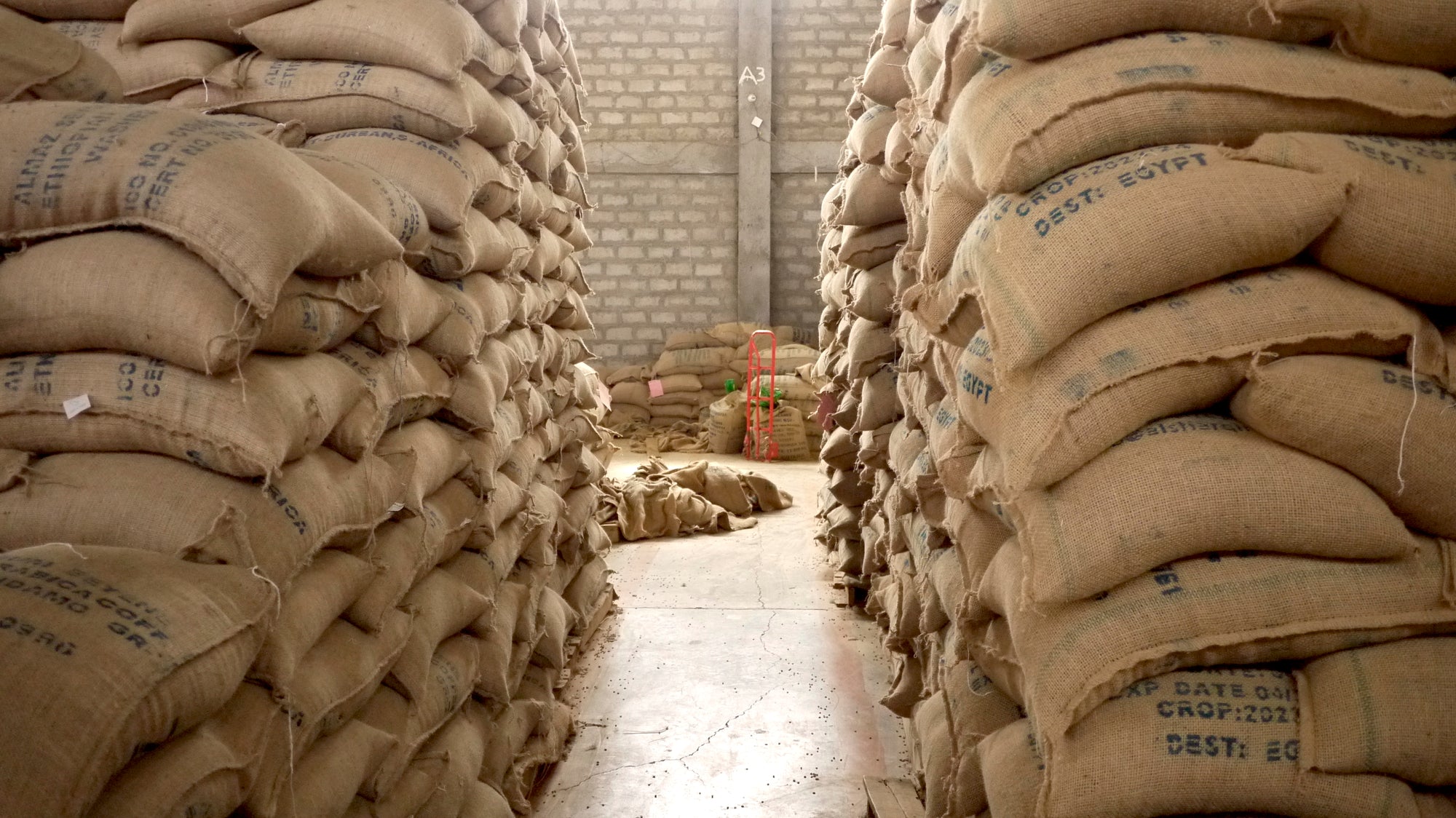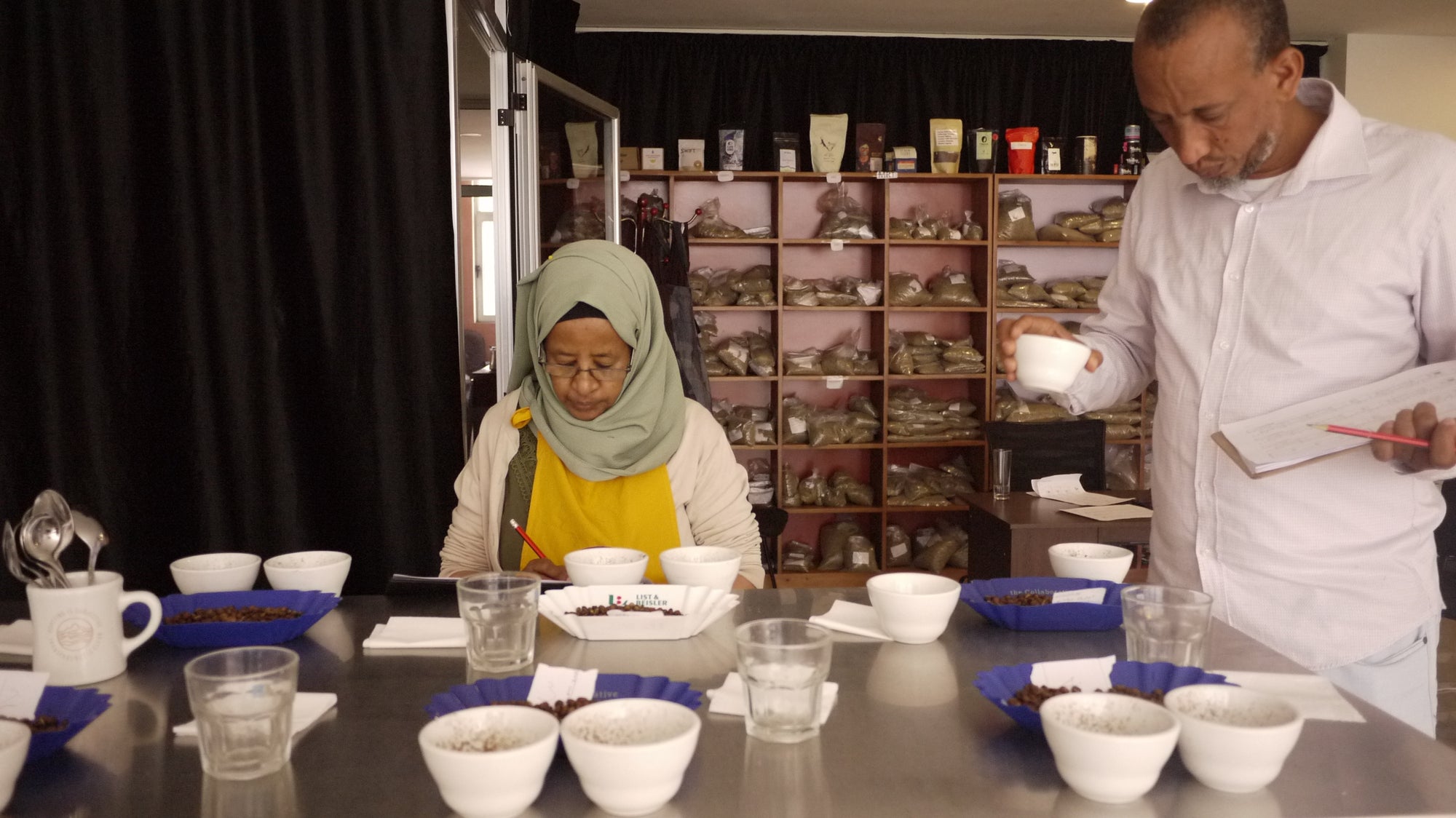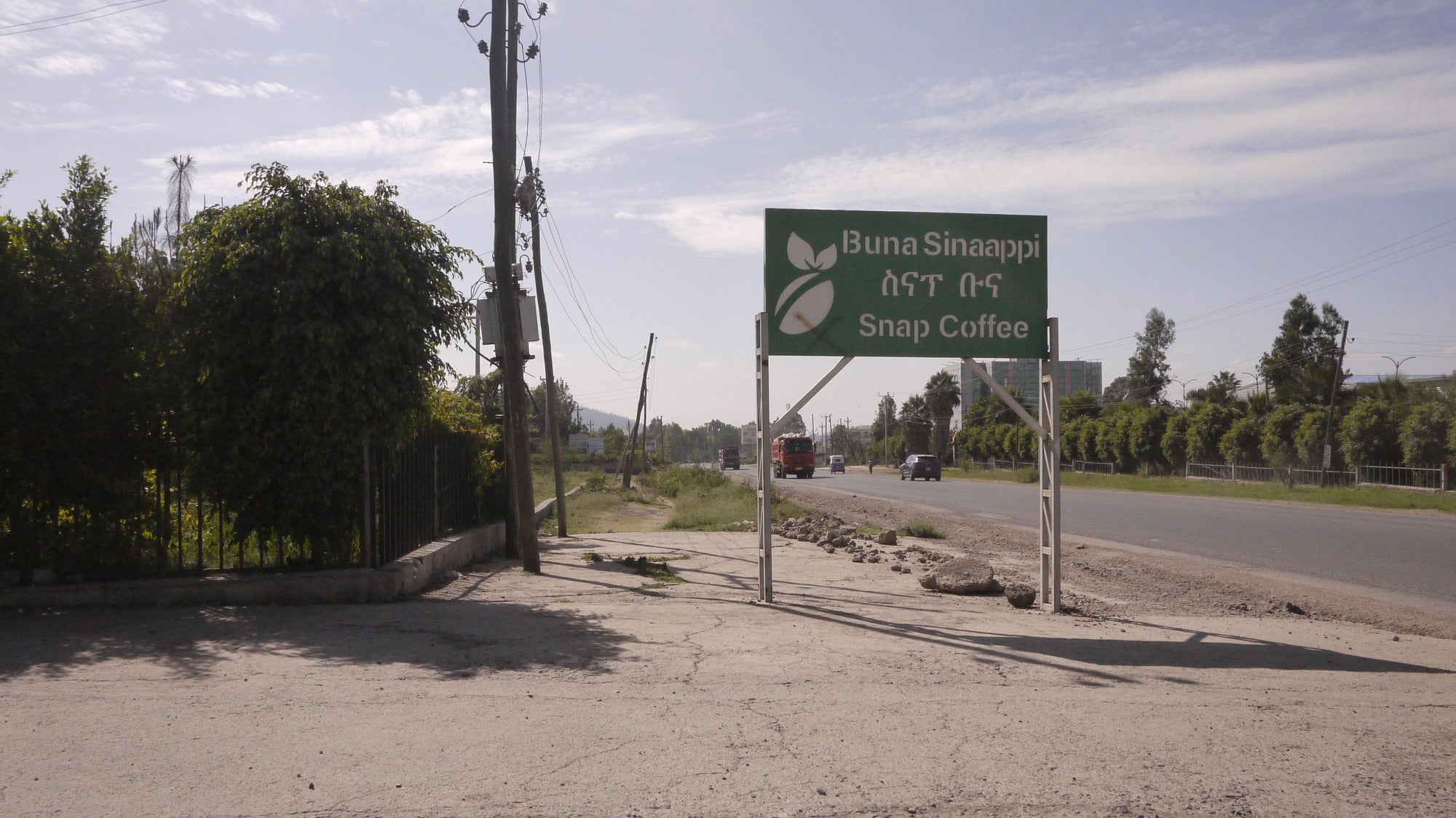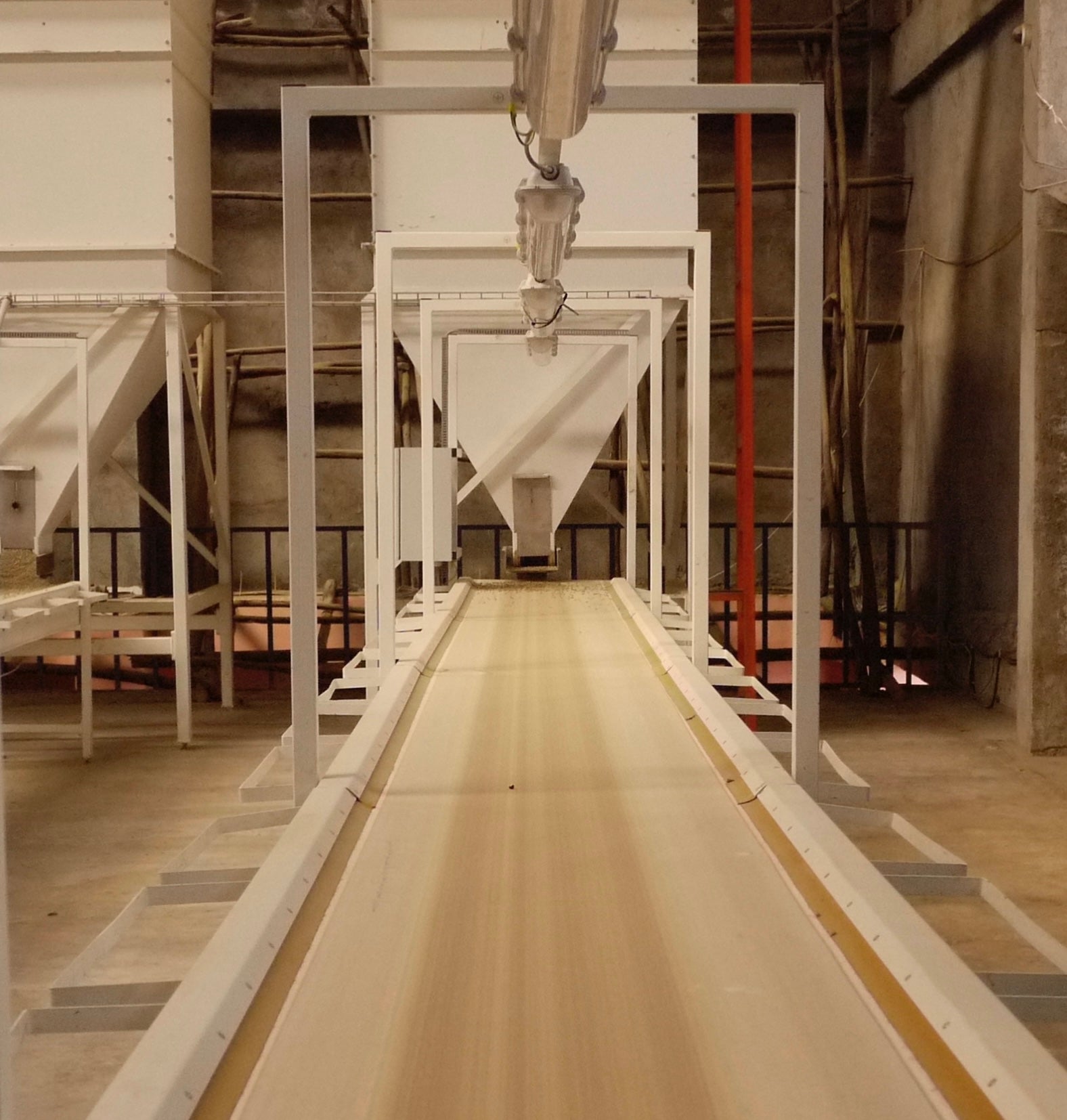ORIGIN TRIP 2024
ETHIOPIA

the birthplace of coffee - Ethiopia
It’s been a busy year for our International Man of Mystery Coffee & Roasting Manager, Jay. Off the back of his Brazil Origin Trip, he headed for Sydney Airport again – this time destined for the coffee homeland.
Ethiopia is Africa’s largest coffee producer and the fifth largest in the world. It’s considered the birthplace of coffee – when a 9th-century goat herder thought to have discovered the now-famous red cherries on an ancient Ethiopian plateau. It makes sense too, the country has a tropical climate perfectly matched for coffee growing: high rainfall and altitude, fertile soil, ideal temperatures and three seasons for beans to grow and thrive.
Over five days, Jay explored, met with producers and snapped some incredible coffee facilities. With the help of Ansha and Moata from CoQua, he measured, cupped and purchased amazing beans, which we will be adding to our roster. Let’s hear about a few of the highlights…
Catching up and tasting fresh crop lots
with Moata and Ansha of COQUA

notes from the field, jay ryu roastery manager
day 1
We started early this morning, heading to the CoQua office to meet Moata, Ansha and the team. They’re doing really well – and laughed as they told me how they missed Russ (Founder of Reuben Hills). Ansha and Moata are both really busy and are set to expand CoQua, building on their repertoire of coffee buyers including us, 7Seeds and Coffee Collective.
After catching up, Moata and I headed to SNAP Mill Which is three times bigger than it was when I last visited. SNAP were super supportive as we tried a bunch of coffees, including Yirgacheffe (considered one of the world’s best coffees).
The coffees all tasted amazing and smelt good too.

On the way back, we stopped for a beautiful lunch of Injera – a traditional Ethiopian flatbread, that’s fermented with a slightly spongy, pancake-like texture, and served with tasty condiments. Then we went to another mill called Sufa, owned by Birhan, which was smaller but very clean and tidy. We’re the first buyers of Birhan’s coffee so the manager was incredibly excited to meet us and I knew they’d do a great job for us. We headed back from Sufa, excited to taste their coffees the next day.
more cupping
day 2
We started the day with more cupping – trying some of the coffees we took from SNAP and Sufa mill. They were the freshest coffees I ever tasted in my life. Yirgacheffe from SNAP was unbelievably good. Chelbesa, Refisa and Raro also stood out, as did Birhan’s Gedeb.
After an exceptional morning of cupping, we went back to Sufa to meet the owner Birhan. Birhan invited us to lunch which was an amazing experience – more injera and a chat about his life and business in Ethiopia. After lunch, we went to Mecota mill, and took samples of beans to cup tomorrow. We headed back to the office at 6pm, checking the moisture, density and water activity of all the samples before calling it a night.
quality control
day 3
No surprise – we started with cupping. The beans from Mecota’s Mamud Gera GR1 also tasted really good. Unfortunately, one of the lot we took the day prior was baggy (a ‘baggy’ taste means the beans have been stored for too long, bringing out flavours of mildew) – it smelled even before cupping. Moata and Ansha agreed. I figured the washed coffees were left in storage too long, as the offer samples I cupped back at Reuben were great. So it was a bit of a mixed bag – some amazing lots of coffee, some that weren’t quite right. I spent the afternoon at Mecota mill, overseeing container loading and organising our shipment of coffee back to Australia.
the importance of transparent trade
Throughout the trip, I spoke with milling stations and exporters and they all re-iterated the importance of transparent trade. They said many exporters send samples to roasters that don’t match the eventual stock, so when roasteries buy up beans, the stock they get is different to the samples they first tried. This is one of the reasons we work so closely with CoQua, who pick up beans from the mills and assess their moisture/condition before sending them our way. They check stock on both the producer and roaster ends, so everyone enjoys fair and safe trade. Solidifying this relationship, and spending time with Moata and Ansha, were big highlights of my time in Ethiopia.
Origin Trips are an essential part of our coffee philosophy.
They allow us to connect with producers, discover new and sustainable farms, and try a range of beans so close to the source. We’re grateful for the opportunity to travel abroad and bring back the best coffee we can find. I hope you enjoy - Cheers, Jay

why is transparency important?
As a small business, we pride ourselves on supporting our coffee producers, ensuring a more sustainable income and lifestyle for their families and communities. We believe presenting the prices we pay for our coffee adds to an ongoing industry movement of transparency and accountability and in doing so, helps ensure the sustainability of the industry we love.



















